Care for our common home group
at St. Teresa's, Filton and St Vincent's, SoutHmead, Bristol UK
HOW THEN SHALL WE LIVE?
“This is a Crisis: Facing up to the Age of Environmental Breakdown”.
[Institute for Public Policy Research (IPPR, 2019) Report]
This report stresses that human impacts go beyond climate change and are occurring at speeds unprecedented in recorded history. It argues that the combination of global warming, soil infertility, pollinator loss, chemical leaching and ocean acidification is creating a “new domain of risk”, which is hugely underestimated by policymakers even though it may pose the greatest threat in human history. In the light of this we ask ourselves
How then shall we live?
We are the children of God in the wonderful world that God has given us to care for. We are very grateful to Him for our life and for all the blessings that He gives us. However the world is complex and society is changing. So we ask ourselves the question:
How then shall we live?
How shall we live at peace with ourselves, with God and with others
How will our lives express our love and worship to God?
In the light of this we ask ourselves again
How then shall we live?


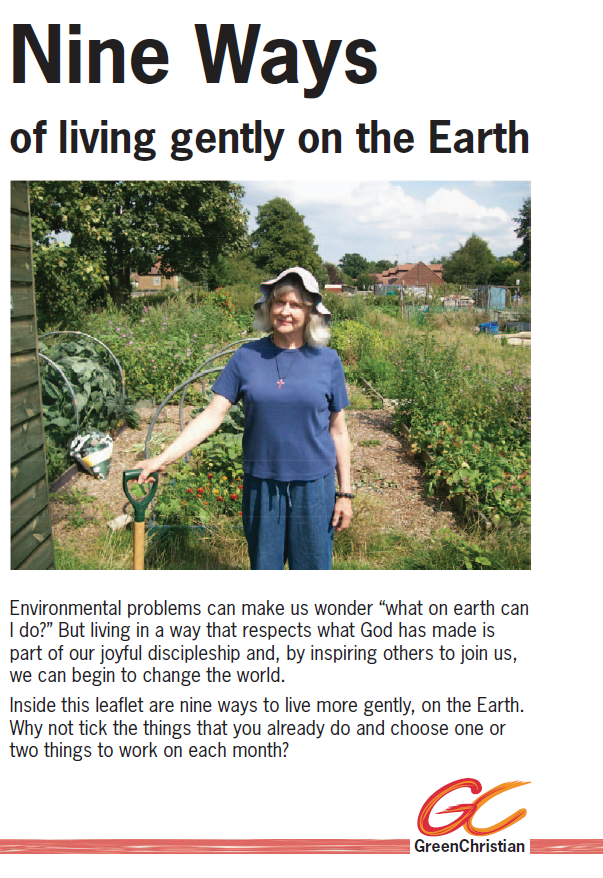

Lord, I am grateful.
I appreciate and thank you for the conveniences of modern life.
May I use them wisely.
85 per cent of all human-produced carbon dioxide emissions come from the burning of fossil fuels like coal, natural gas and oil. Overall, electricity and heat generation produces over 40% of fossil fuel related carbon dioxide emissions – the largest of all human activities. In 2021, households in the UK accounted for 32% per cent of the total energy consumption.
Don’t waste heat
Energy supplier – with a number of green energy suppliers, and others offering specific renewable tariffs, is now the time for me to change to a greener supplier or tariff? (www.which.co.uk> Differences between green energy suppliers)
Heating – I will check my insulation, but could I use curtains and turn down my heating and wear warmer clothes?
Hot water – could I take short showers instead of baths? Could I boil only what I need in my kettle rather than a kettle full each time?
Cooking tips – there are lots of simple ways to reduce energy use.
Other energy uses. I will check:
Are all my light bulbs LED?
Do I switch things off?
Do I leave lights on, chargers on or leave things on standby?
Do I need to use that machine?
Could I hang my washing instead of tumbling
Could I use the dishwasher only when it’s full?
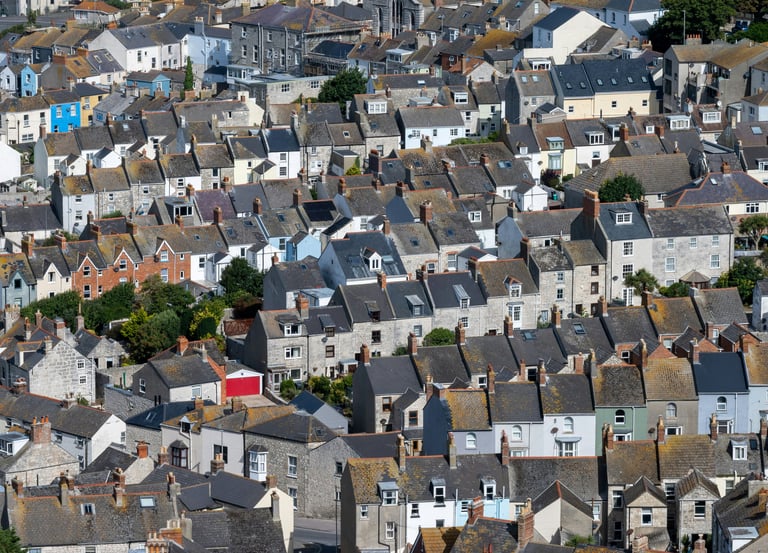

1. Home energy
Manufacturing things involves raw materials and energy; bringing them to us means transporting them. The price we pay for something may not in any way reflect its environmental cost. We need to consider what it is made of, and how it was made and where it was made. (From a different standpoint, we need to consider who made them and how much they were paid!)
And he said to them, “Take care! Be on your guard against all kinds of greed; for one's life does not consist in the abundance of possessions.” Luke 12.15
Consume less
Do I really need that thing I am planning to buy?
Do I need to buy new? Instead, could I borrow, share, make do, repair or buy second-hand?
Should I buy the cheapest or buy to last? “Buy cheap – buy twice!”
Recycling. Could I review what I put in my recycling bin?
How could I recycle the things that are not collected in the bins – metals, batteries, glass, bottle tops, toothpaste tubes, biscuit and crisp wrappers etc, and even old mobile phones?
2. What we buy and what we recycle
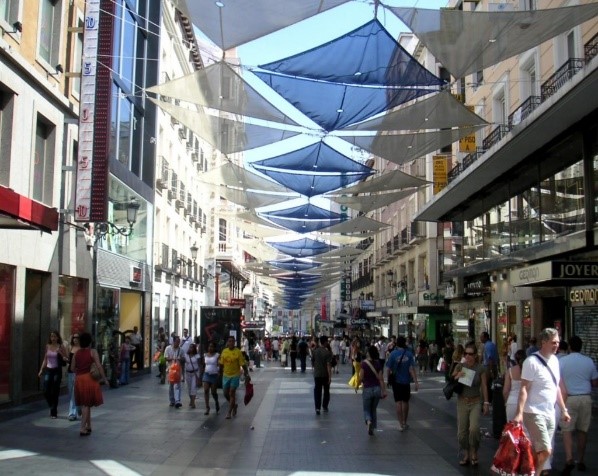

Lord, I value the detail, the items, the little things I use in life.
May I care for each and every one.
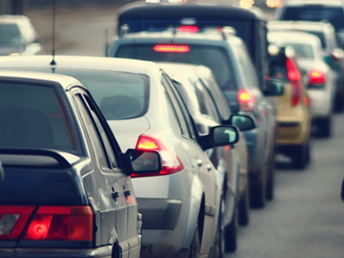

3. Transport
Transporting goods and people around the world accounts for 16% of greenhouse gas emissions. In the UK transport represents 34% of our total energy consumption. Road transport accounts for nearly 90% of this and nearly twice as much energy is used in transporting people as opposed to freight. Public transport is much more carbon efficient. Globally, transporting goods by air produces at least 25 times more CO2 than transporting the same things by sea.
Drive fewer miles
Locally. Could I walk, cycle, use public transport, get a lift or car-share? (Could I use an occasional taxi rather than keeping a car?)
For longer trips could I use public transport? Do I really need to go there anyway?
When I drive, I will remember that:
Motorway driving is more fuel efficient than smaller roads
Driving at 10mph slower, with windows closed and tyre pressures right, saves a lot of fuel
Have I considered electric (or hybrid), or not having a car at all?
Some shopping online makes sense when it saves my petrol going to the supermarket – but consider Amazon’s impact on high streets!
Could I more seriously avoid air travel - take holidays without flying? Or if I have to fly, can I offset the carbon I produce?
Lord, thank you for the gift of the whole world, for technology and the ability to travel and transport.
May I also realise my responsibility for the climate.
4. What we eat
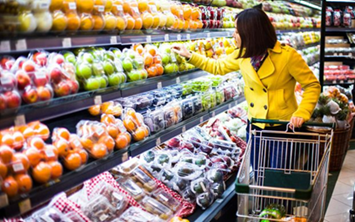

“The biggest intervention people could make towards reducing their carbon footprints would not be to abandon cars, but to eat significantly less red meat,” Prof Tim Benton, of University of Leeds. Red meat dwarfs others for environmental impact, using 28 times more land and 11 times more water than for pork or chicken. Agriculture causes around 19% of all CO2 emissions, a third of which are from livestock. Furthermore, the huge amounts of grain and water needed to raise cattle is a concern if we are to feed an extra 2 billion people by 2050.
Eat less meat
o Could I eat much less meat and dairy? (also fewer eggs and less fish) – and eat more nuts, seeds and vegetables?
o Do I abstain from meat on Friday in the Catholic tradition?
o Could I cut down on wastage? – not buying or cooking too much – if I do, then could I freeze it?
Do I avoid single use plastic packaging?
Do I avoid food that’s been flown in?
Could I consistently buy local, buy seasonal and avoid processed food.
Could I grow my own and compost more of my waste?
Lord, thank you for food to eat,
for land that produces crops,
for animals that give their lives.
May I be mindful as I plan my meals
and look to you for my food.
5. Campaigning
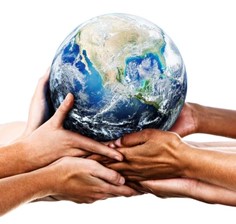

“So then, putting away falsehood, let all of us speak the truth to our neighbours, for we are members of one another. Be angry but do not sin;” Eph 4:25,26
For all our individual actions, which are important, government action is even more essential. So…
Make your voice heard
Could I write to my MP? asking him/her to urge the government to set a net zero greenhouse gas emissions reduction target before-2050*
Can I try to find out what the Climate Coalition is doing next and take action? www.theclimatecoalition.org
Can I help with CAFOD campaigns?
Banks are still investing in fossil fuels. Have I checked out my bank? Could I change it? Christian Aid has targeted HSBC, Greenpeace has targeted Barclays. Could I take part in one of these?
Could I complain more when companies deliver goods to me with unnecessary packaging?
Could I write to my supermarket to ask them to include more eco-friendly items and packaging?
Lord, thank you for my ability to think, feel and act in this world. May I be strong, faithful and courageous in playing my part in caring for our world.
6. Lifestyle
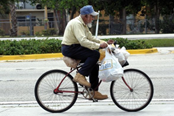

If you want your dream to be
Take your time, go slowly
Do few things but do them well
Heartfelt work grows purely
If you want to live life free
Take your time, go slowly
Do few things but do them well
Heartfelt work grows purely
Day by day, stone by stone
Build your secret slowly
Day by day, you’ll grow too
You’ll know heaven’s glory
If you want to live life free
Take your time, go slowly
If you want your dream to be
Take your time, go slowly
‘Little Church’ (Donovan Leitch)
Slow down
Could I do less and enjoy more?
Could I make time to wonder at the world around me?
Could I learn to take life more slowly?
Could I appreciate quality rather than quantity?
Could I find ways for giving gifts that are not consumer products?
Could I give CAFOD World Gifts at Birthdays and Christmas?
Lord, thank you for the details of my experience of life.
May I be calm in spirit, so that I appreciate the present moment.
Credits
Originally produced for St Nicolas CofE Church, Earley www.stnicolas.org.uk 2019 –
Edited 2019 and reproduced with permission by the LiveSimply Team at Catholic Leamington.
Updated September 2023 for the Season of Creation at St Teresa's, Filton, Bristol by Brian Austin.
Data from various sources, including: gov.uk, Bill Gates “How to avoid a climate dis.aster”, ourworldindata.org
If you find any errors, please inform me below in the footer contact form below. Thank you.
PLEASE CONTACT US HERE
© 2024. All rights reserved.
Care for our common home group
at St. Teresa's, Filton and St Vincent's, Southmead, Bristol UK
We are a small group trying to help everyone in our parishes, including ourselves, to do something about our environment for the benefit of our world, ourselves, our children's children and beyond.
We are inspired by Pope Francis' 2015 encyclical letter 'Laudato Si'' on Care for Our Common Home (hence our name).
"As Christians we are inspired to be good stewards of the earth, to conserve and protect God’s creation and the earth’s resource." [Catholic Bishops of England and Wales]
